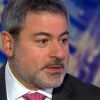10 Sustainable Development Books That Shape Expert Thinking
Insights from David Roberts, Jacquelyn Gill, Klaus Schwab and 7 more on Sustainable Development Books to guide your learning journey





What if the solutions to our planet’s biggest challenges already exist but remain scattered and overlooked? Climate change and sustainable development often feel like distant, abstract battles. Yet, experts like David Roberts, an energy politics writer, found Drawdown as a breakthrough—it’s the first accessible guide mapping concrete carbon reduction solutions across sectors. Roberts notes, "The public is hungry for this kind of practical wisdom."
Jacquelyn Gill, a climate ecologist, sees this book as part of the vital shift toward action-oriented climate conversations. Meanwhile, Klaus Schwab, founder of the World Economic Forum, highlights The Circular Economy Handbook as a key resource for leaders navigating the intersection of innovation and sustainability. These voices represent a spectrum from science to policy, business, and governance, showing the multifaceted nature of sustainable development.
While these expert-curated books provide proven frameworks, readers seeking content tailored to their specific background, skill level, and sustainability goals might consider creating a personalized Sustainable Development book that builds on these insights and addresses your unique challenges.
Recommended by David Roberts
Energy politics writer, climate analyst
“There’s been no real way for ordinary people to get an understanding of what they can do and what impact it can have. There remains no single, comprehensive, reliable compendium of carbon-reduction solutions across sectors. At least until now. . . . The public is hungry for this kind of practical wisdom.”
Unlike most environmental books that focus solely on problems, Paul Hawken’s Drawdown presents a well-researched catalog of 100 specific solutions to reverse global warming, grounded in science and economics. You’ll explore diverse strategies ranging from clean energy technologies to empowering education for girls in lower-income countries, backed by data on their impact and feasibility. Hawken’s background as an environmentalist and social entrepreneur informs a pragmatic yet hopeful tone that equips you with a clear sense of what can realistically be done. This book suits anyone seeking a broad yet detailed picture of climate solutions, especially those wanting to understand actionable options across sectors rather than just the theory behind climate change.
Recommended by Klaus Schwab
Founder and Executive Chairman, World Economic Forum
“The Fourth Industrial Revolution will impact every aspect of our lives. In order to thrive within this new global dynamic, we need to adopt new business models and norms. The circular economy is one approach that can enable us to keep pace with technological innovation, support integrated and sustainable ecosystems, and move us towards a brighter future. The Circular Economy Handbook is an essential guide for organizations of all types looking to capitalize on the circular opportunity.”
by Peter Lacy, Jessica Long, Wesley Spindler··You?
by Peter Lacy, Jessica Long, Wesley Spindler··You?
When Peter Lacy and his co-authors shifted their view from just proving the circular economy's potential to outlining how to actually implement it at scale, they transformed the conversation around sustainable business. Drawing on Lacy's extensive experience advising Fortune 500 companies and leading global sustainability studies, this handbook offers you concrete strategies to pivot from linear models to circular ones. You’ll explore real-world case studies and frameworks that reveal how to embed circularity across entire organizations and value chains. This is a guide for executives and sustainability leaders ready to drive innovation while addressing critical planetary limits, not suited for casual readers seeking introductory overviews.
by TailoredRead AI·
This personalized book provides a tailored framework addressing the core principles of sustainable development with specific attention to your unique context and goals. It examines foundational concepts such as ecological balance, economic viability, and social equity, then systematically applies them to your industry and objectives. The book dives into targeted strategies for resource management, policy integration, and stakeholder engagement, cutting through generic advice to fit your specific challenges. Offering concrete pathways for implementation, it balances environmental, social, and economic dimensions to help you develop practical, context-sensitive solutions. This tailored approach ensures relevance and actionable insights aligned precisely with your sustainability ambitions and background.
Recommended by Partha Dasgupta
Frank Ramsey Professor Emeritus of Economics, University of Cambridge
“If we are to make peace with nature, the effort will have to come from us all. This very moving book is the finest introduction to the subject I have seen. It does not avoid technicalities, but can be read with equal benefit by the young and the old with no prior knowledge of the complexities we face.”
by Pamela Matson, William C. Clark, Krister Par Andersson··You?
by Pamela Matson, William C. Clark, Krister Par Andersson··You?
What if everything you knew about sustainable development was wrong? Pamela Matson, drawing from her extensive experience as a Stanford professor specializing in human-environment interactions, challenges conventional views by presenting sustainability as a complex adaptive system rather than a fixed target. You learn how interdisciplinary approaches and governance can reshape social-environmental dynamics, with case studies illustrating real-world applications in sectors like energy and food. This book suits those seeking a strategic framework to connect scientific knowledge with actionable change, especially students and practitioners eager to grasp sustainability beyond surface-level concepts.
Recommended by Edeltraud Gunther
United Nations University
“Sustainability management can only be comprehensive when it allows for tensions, and thoroughly considers the perspective of the Global South. This textbook presents the reader with tools to enable them to deal with tensions, and will be helpful to both decision-makers and communities in raising awareness of the importance of diverse perspectives.”
by Rüdiger Hahn··You?
When Rüdiger Hahn first realized the complexity of integrating sustainability into business operations, he crafted this detailed resource to bridge theory with practical management tools. Drawing from his extensive academic career and award-winning teaching in sustainability management, Hahn guides you through concepts and instruments across marketing, accounting, supply chain, and innovation—all framed through a stakeholder lens involving employees, customers, and regulators. You'll gain insight into reducing risks and enhancing corporate legitimacy while navigating the tensions inherent in sustainable development. This book suits anyone aiming to embed sustainability strategically within organizations, from students to executives, with clear examples and global perspectives throughout.
Recommended by Wolfgang Blau
President of Condé Nast International
“@sunnie_huang Great! Maybe we can chat once you are done. I have so many questions about this book.” (from X)
by John Doerr, Ryan Panchadsaram··You?
by John Doerr, Ryan Panchadsaram··You?
Tackling the urgent challenge of climate change, John Doerr and Ryan Panchadsaram offer a pragmatic roadmap in this book that distills decades of clean tech investment and policy experience into a focused 10-step plan. You’ll gain concrete knowledge on cutting greenhouse gas emissions, from electrifying energy grids to reforming food supply chains, illustrated through insights from climate leaders like Al Gore and Christiana Figueres. This book is particularly suited for policymakers, entrepreneurs, and individuals seeking actionable frameworks to contribute meaningfully to climate solutions. While it doesn’t promise easy fixes, it lays out measurable goals and economic strategies that underline the scale and speed needed to make an impact.
This personalized book provides a tailored approach to adopting daily sustainable development actions, designed to fit your unique context and objectives. It breaks down complex sustainability principles into a clear, step-by-step daily action plan that emphasizes practical implementation and measurable impact. By focusing on an actionable 30-day transformation, it cuts through irrelevant advice to deliver a targeted framework that integrates environmental, social, and economic dimensions of sustainability. Readers gain strategies for behavior change, resource management, and community engagement, all aligned with their specific industry, skill level, and goals. This tailored guide supports sustained progress by connecting expert principles directly to your personal sustainability journey.
Recommended by Edward Lucas
Journalist at The Times and CEPA
“A revolutionary work in several senses.”
by Dieter Helm··You?
by Dieter Helm··You?
What if everything you knew about building a sustainable economy was wrong? Dieter Helm argues that current efforts fall short by ignoring the true costs of maintaining natural capital and the necessity of polluters paying for environmental damage. You’ll gain a detailed understanding of why economic systems must fund the upkeep of natural assets and why saving to invest is crucial for intergenerational responsibility. Chapters dismantle superficial net zero claims and reveal the neglect of core infrastructure, challenging you to rethink economic development through a more rigorous sustainability lens. This book suits anyone grappling with environmental policy, economics, or the future of sustainable development.
Recommended by Nathan Gardels
Cofounder, Berggruen Institute; Editor-in-Chief, The WorldPost
“Chandran Nair is an incisive and visionary thinker with a properly sober take on our ‘crowded and resource-constrained’ future. He is totally right in The Sustainable State that the emerging economies’ adoption of the consumption-driven model of growth that has characterized the wealthy West would exhaust our planet’s capacity. As he also rightly argues, what is needed is both a cultural shift from an aspiration of well-having to one of well-being and a shift from the free rein of the market's invisible hand to intelligent governance through the guiding hand of the state.”
by Chandran Nair··You?
When Chandran Nair challenged the prevailing belief that free-market-driven development is the path to prosperity, he reshaped how you might see sustainable growth. Drawing on his experience leading the Global Institute For Tomorrow and speaking at global economic forums, Nair argues for a stronger state role in directing economies toward environmental protection and social equity. You’ll gain insight into why unchecked consumption models fail, especially in populous developing regions, and explore case studies illustrating effective state governance. This book suits you if you're interested in alternative economic models that prioritize collective well-being over individual excess.
by Dr. John C. Mutter··You?
by Dr. John C. Mutter··You?
Unlike most sustainable development books that focus mainly on policy or economics, this primer by John C. Mutter zeroes in on the essential climate science behind the challenges you face. Mutter, a Columbia University professor with expertise in Earth sciences and public affairs, lays out the mechanics of climate systems, from ocean-atmosphere dynamics to long-term glacial cycles, making complex concepts accessible without oversimplifying. You’ll gain a clear understanding of how human activity alters climate patterns and the implications for development strategies, such as sea level rise and hurricane behavior, with detailed explanations of prediction methods and their uncertainties. This book suits anyone wanting a foundational grasp of climate science specifically tailored for sustainable development contexts, especially students and practitioners needing a scientific framework to inform their decisions.
by Steven Cohen, Dong Guo··You?
by Steven Cohen, Dong Guo··You?
The Sustainable City offers a detailed look at how urban centers hold the key to achieving sustainability amid rapid global urbanization. Steven Cohen, drawing from his extensive experience at Columbia University and the Earth Institute, explores how behavioral changes, public policy, and organizational management intersect to shape sustainable urban living. You’ll gain insights into practical aspects such as sustainable transportation, energy sources, waste management, and social inclusion through case studies and international examples. This book suits anyone interested in how cities can balance economic growth with environmental stewardship and social equity, especially policymakers, urban planners, and sustainability advocates.
Recommended by Martin Bloem
Director and professor at Johns Hopkins
“Great SciMagBooks review of Nicoletta Batini’s new book, “The Economics of Sustainable Food,” highlighting the chapter “Greening food demand in less-advanced economies” co-authored with Divya A Mehra, Saskia de Pee, and Jessica Fanzo” (from X)
by Nicoletta Batini··You?
by Nicoletta Batini··You?
When Nicoletta Batini first realized the hidden economic toll of industrial food production, she set out to quantify its true cost on health and the environment. Drawing from her extensive background in monetary and fiscal policy, Batini reveals how current food systems impose vast unaccounted costs through malnutrition, disease, and ecological damage. You’ll learn how smart macroeconomic policies—ranging from targeted taxes on carbon-intensive foods to subsidies for regenerative farming—can shift both production and consumption toward sustainability. This book suits policymakers, economists, and anyone interested in how economic tools can reshape food systems for healthier people and a healthier planet.
Get Your Personal Sustainable Development Guide ✨
Stop following generic advice that doesn't fit your situation. Get targeted strategies without reading 10+ books.
Join 15,000+ Sustainable Development enthusiasts who've personalized their approach
Conclusion
Together, these 10 books reveal three clear themes: practical climate solutions, strategic governance and economic models, and the vital role of urban and business innovation. If you’re grappling with policy or investment decisions, start with Speed & Scale and Legacy for economic insights. For immediate application in organizations, pair Sustainability Management with The Circular Economy Handbook.
Those more focused on science and foundational knowledge should explore Pursuing Sustainability and Climate Change Science to ground your understanding. Urban planners and social innovators will find The Sustainable City invaluable.
Once you've absorbed these expert insights, create a personalized Sustainable Development book to bridge the gap between general principles and your specific situation. This tailored approach empowers you to move from theory to action faster and with more confidence.
Frequently Asked Questions
I'm overwhelmed by choice – which book should I start with?
Start with Drawdown for a broad yet practical overview of climate solutions, recommended by David Roberts and Jacquelyn Gill. It sets a clear foundation before diving into specialized topics.
Are these books too advanced for someone new to Sustainable Development?
Not at all. Books like Pursuing Sustainability and Climate Change Science explain key concepts accessibly, making them great for beginners seeking solid scientific and practical foundations.
What’s the best order to read these books?
Begin with broad context books like Drawdown and Pursuing Sustainability, then explore specific domains such as economics with Legacy, policy with Speed & Scale, and urban planning with The Sustainable City.
Do I really need to read all of these, or can I just pick one?
Each book offers unique insights. Depending on your goals, you can focus on one area, but combining a few—like Speed & Scale with The Circular Economy Handbook—provides a balanced view of action and strategy.
Are any of these books outdated given how fast Sustainable Development changes?
The selected books include recent releases like Legacy (2024) and Speed & Scale (2021), reflecting current research and policy debates. Their expert endorsements ensure relevance today.
How can I apply these expert books to my specific Sustainable Development challenges?
While these books offer expert knowledge, personalized Sustainable Development books tailor insights to your background and goals. You can create your own tailored book here for focused, actionable guidance.
📚 Love this book list?
Help fellow book lovers discover great books, share this curated list with others!
Related Articles You May Like
Explore more curated book recommendations









